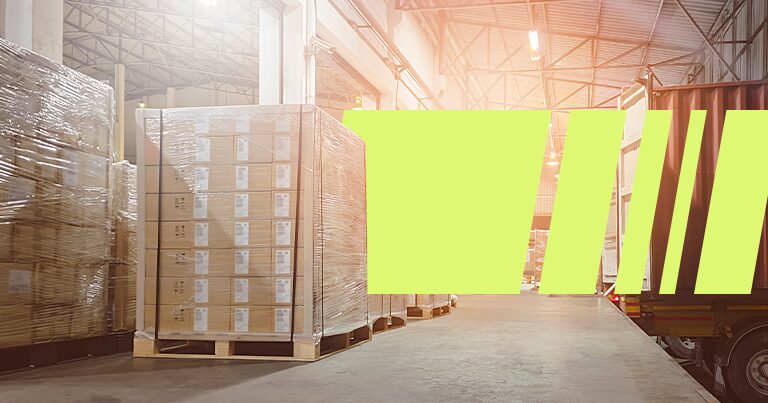Are you currently using less-than-truckload (LTL) shipping for your goods? As your business expands, are you noticing that your shipments are getting larger? Typically, LTL shipments range from 150 to 15,000 pounds and can include up to 10 pallets. However, if your loads consistently exceed 5,000 pounds or more than five pallets, it might be time to explore alternative freight options to boost shipping efficiency and cost savings. Maybe it's time to consider full truckload (FTL), partial truckload (PTL), or volume LTL services.
Real World Freight Shipping Scenarios
Each freight shipping mode mentioned here provides unique solutions that need to be weighed against your shipping needs. Let's take a closer look at some shipping challenges similar to those you might be facing.
Situation: A Large, Fragile Shipment
"I have a shipment of delicate medical equipment that's around 15,000 pounds. It's bigger than my usual LTL shipments but probably won't fill an entire truck."
Recommendation: FTL Freight
You likely want to look at FTL shipping. This mode is typically appropriate for shipments that weigh 15,000 to 44,000 pounds and include up to 26 pallets. Even if you don't quite fill the truck, it may be worth leveraging FTL to get exclusive use of the space, which means less handling since other companies' freight won't need to be loaded or unloaded. And unlike LTL freight, your shipment will go directly from origin to destination without stopping to pick up or drop off any other freight. It also won't be transferred from truck to truck, making it more secure and less susceptible to damage. Just remember, FTL shipment rates are market-based and can fluctuate from day to day, so it's always good to check current pricing.
Situation: Big Shipment, Short Journey
"I have 10 pallets of flat-pack furniture, each weighing around 2,000 pounds, going from Ohio to Indiana."
Recommendation: Partial Truckload Shipping
Considering the relatively short distance and the size of the shipment, partial truckload shipping might be the ideal choice. PTL is often used for loads that weigh between 8,000 and 27,500 pounds and/or include about 8‒18 pallets. Unlike FTL, you only pay for the space your shipment occupies, rather than the entire truck. However, shipping longer distances costs more with PTL than volume LTL. On the plus side, while PTL shipments can share space with one or more loads from different companies, there are typically fewer stops than with LTL or volume LTL, and your freight will stay in the same truck for the whole journey. This means faster transit times and lower risks associated with handling.
Situation: Cross-Country Freight Shipping On a Budget
"I have a shipment of seven pallets of retail goods, weighing approximately 9,000 pounds, with a total length of 14 linear feet, going halfway across the country. Keeping costs down is a high priority for me."
Recommendation: Volume LTL
For this scenario, volume LTL shipping would be a suitable choice. Size-wise, volume LTL bridges the gap between LTL and PTL. It can be ideal for shipments that weigh more than 5,000 pounds, are six pallets or more, and/or are longer than 12 linear feet. Volume LTL is priced according to a carrier's LTL rates, so these shipments require a freight classification, unlike FTL and PTL. In general, volume LTL offers cost-effective pricing between traditional LTL and PTL, so it can be an economical option. Additionally, volume LTL shipments generally experience fewer stops and transfers than standard LTL, which can equal faster transit times and less handling.
Freight Shipping Options at a Glance
| LTL | Volume LTL | Partial Truckload | Truckload | |
| Number of pallets | 1 to 10 | More than 6 | 8 to 18 | 1 to 26 |
| Weight | 150 — 15,000 lbs. | More than 5,000 — 10,000 lbs. | 8,000 — 27,500 lbs. | 15,000 — 44,000 lbs. |
| Length | Maximum of 12 linear feet | Longer than 12 linear feet | Maximum length depends on the truck being used | Maximum length depends on the truck being used |
| Transit | Multiple stops | Multiple stops | Direct to drop-off location, with some exceptions | Direct to drop-off location |
| Durability | Better for durable cargo | Better for durable cargo | Less risk of damage | Less risk of damage |
| Pricing | Based on classification code | Based on classification code | Based on market price | Based on market price |
Let GlobalTranz optimize your freight shipping strategy!
GlobalTranz has decades of experience in the logistics industry and helps thousands of shippers of all sizes move products with great efficiency. We are also part of WWEX Group, alongside Worldwide Express and Unishippers. Combined, these three companies make up one of the largest and most diverse 3PLs in the industry, providing shippers with top solutions that help them succeed. Through our full suite of shipping solutions, we service more than 48 million shipments annually and have the resources and expertise to work with companies of all sizes in nearly every industry.
See how GlobalTranz can help you transform your freight shipping. If you are ready to talk to an expert, reach out for a free consultation today!

